
Text and picture/Wang Yuanchang
The year is gone with the sound of firecrackers, and the spring breeze brings warmth to the summer. In the sun, thousands of households always replace the old charms with new peaches.
——”New Year’s Day” by Wang Anshi of the Song Dynasty
In the Lunar New Year, different regions have different folk customs; different families have different expectations. But the feelings rooted in the heart and praying for a better life are interconnected and difficult to change. The artistic expression that carries the profound feelings of Yan and Huang, interprets the folk customs and beautifies people’s lives, is indispensable for colorful New Year pictures.
The origin of Chinese New Year paintings can be traced back to the patron sacred paintings such as exorcism and evil spirits in the Qin and Han Dynasties or earlier, including Tao Talismans, Zhong Kui statues, BabaylanTianxing Posts, etc. By the Song Dynasty, with the rise and maturity of woodblock printing technology, New Year’s paintings gradually evolved from patron sacred paintings to colored and colored woodblocked New Year’s paintings, which was the first precedent for woodblock New Year’s paintings in the history of Chinese painting.
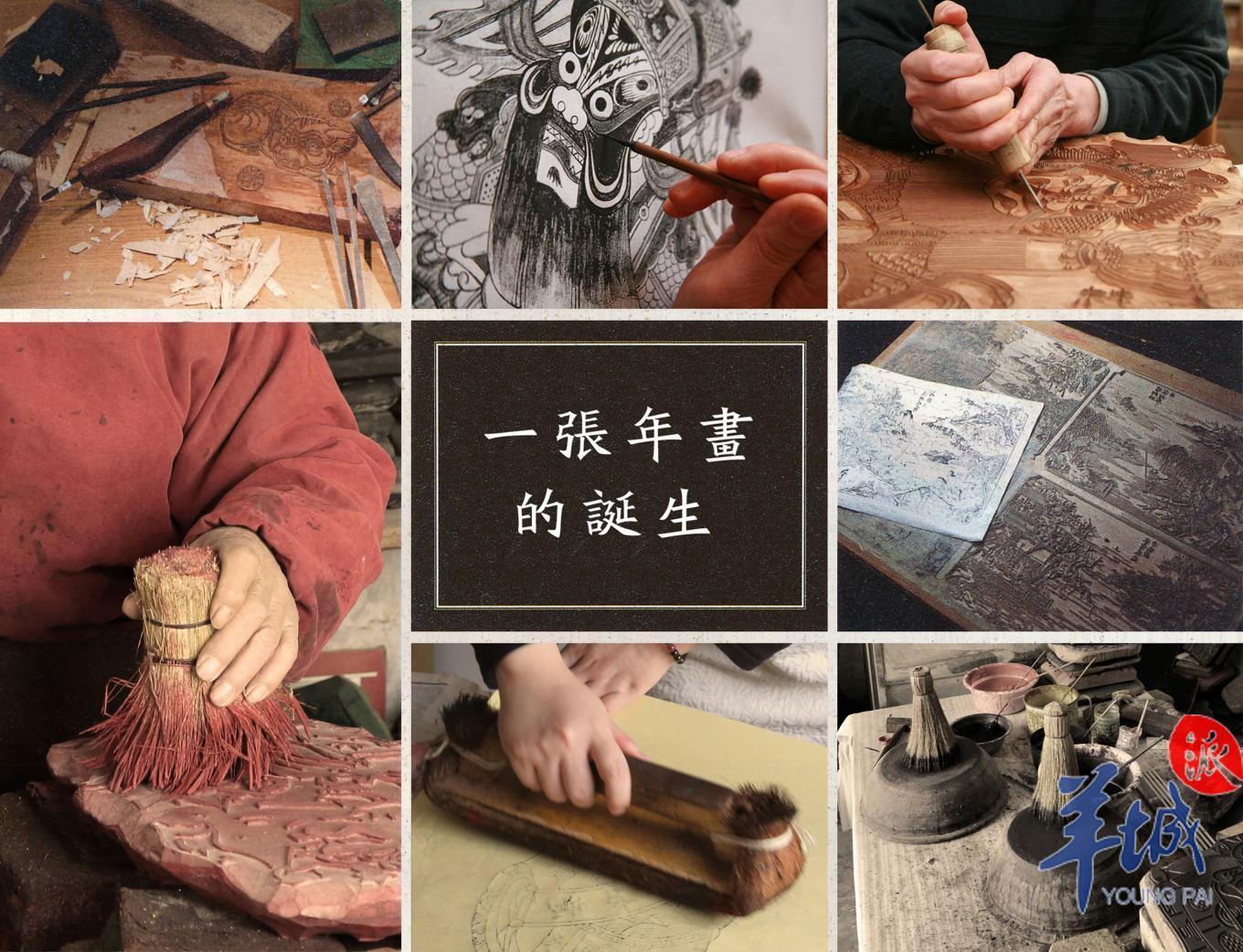
In recent years, there have been woodblock New Year pictures from 17 major domestic production areas including Tianjin Yangliuqing, Jiangsu Suzhou, Shandong Weifang, Sichuan Mianzhu, Henan Kaifeng, Shaanxi Fengxiang, and other 17 domestic intangible cultural heritage list.
In my more than ten years of searching for New Year pictures, I discovered that the birthplace of Chinese woodblock New Year pictures, the New Year pictures of “Zhuxian Town” in Kaifeng have a strong aroma of yin and yellow, full of emotions, and vivid folk customs.
The Suzhou Taohuawu and Tianjin Yangliu Youth Paintings, which are praised by the world as “Taohuawu in the south and willows in the north and south, are the most dazzling. They create based on real life, highlighting the character characteristics of the characters, and the pictures are prosperous and lively, full of expressiveness and attractiveness.
Today, woodblock New Year pictures with a long history and can be regarded as a classic Chinese cultural heritage have been picked up again by more and more people, from posting on the four walls of the house in the past to exquisitely produced and framed artworks, bidding farewell to the old and welcoming the new, including daily housewarming, newlyweds, etc., and setting up hanging hall shops.
Especially, some courtyard houses in the streets and alleys of the New Year pictures are produced, “always replace new peaches with old charms”, the New Year pictures hanging in the hall and the door gods posted outside the two courtyard doors form a beautiful New Year scenery with Jirui’s Fu couplets and festive red lanterns. It demonstrates people’s yearning for a better life and exudesThe youth that is hard to let go of in the hearts of the people.
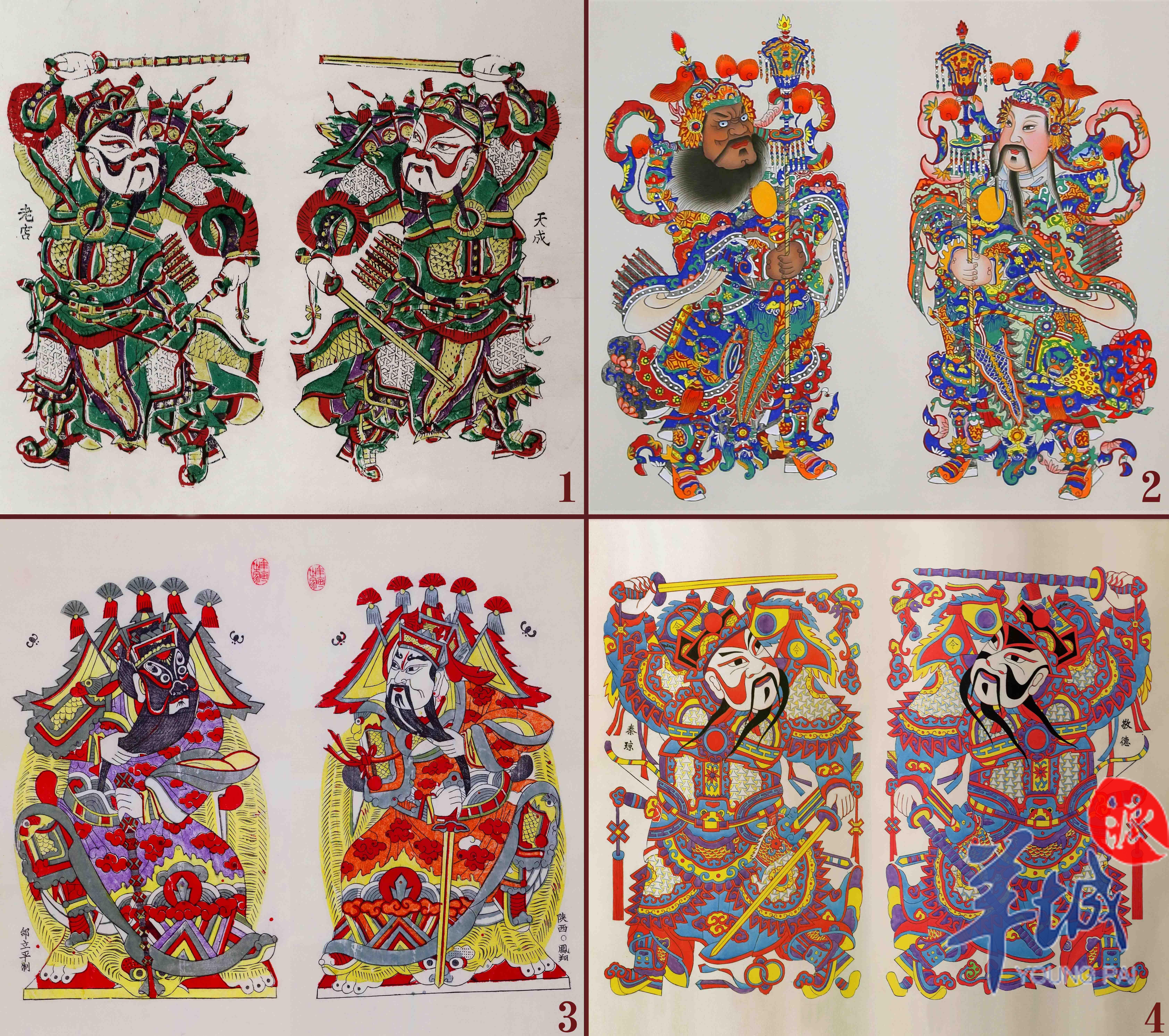 The earliest form of New Year’s painting is the door paintings posted on the door of the New Year, namely the “door god”, which uses colors and techniques in different regions. Figure 1 shows the door god New Year painting created by Yin Guoquan, the national inheritor of Zhuxian Town woodblock New Year painting; Figure 2 shows the door god New Year painting of Yang Liuqing; Figure 3 shows the door god New Year painting created by Tai Liping, the national inheritor of Fengxiang woodblock New Year painting; Figure 4 shows the door god New Year painting created by Yang Fuyuan, the national inheritor of Yangjiabu woodblock New Year painting.
The earliest form of New Year’s painting is the door paintings posted on the door of the New Year, namely the “door god”, which uses colors and techniques in different regions. Figure 1 shows the door god New Year painting created by Yin Guoquan, the national inheritor of Zhuxian Town woodblock New Year painting; Figure 2 shows the door god New Year painting of Yang Liuqing; Figure 3 shows the door god New Year painting created by Tai Liping, the national inheritor of Fengxiang woodblock New Year painting; Figure 4 shows the door god New Year painting created by Yang Fuyuan, the national inheritor of Yangjiabu woodblock New Year painting.
Kaifeng Zhuxian Town opened a precedent for woodblock New Year painting
In ancient times, Zhuxian Town was ranked one of the “Four Ancient Towns in China”. What made its reputation famous was the woodblock New Year painting that was popular here and passed down through the ages. Zhuxianzhen woodblock New Year paintings, as an outstanding representative of traditional Chinese art, have been included in the first batch of national intangible cultural heritage list.
The day I went to Zhuxian Town, I was caught up with a rare heavy snowfall in Kaifeng. The flying snowflakes in the sky made the morning of the ancient town less noisy, and the sight of some shops and vendors cleaning the snow in front of the door. This ancient town that has been covered with wind and rain for thousands of years cannot imagine its glory.
The Yuewang Temple, which was built here during the Ming Dynasty, is located on the side of Yuemiao Street. It is a wooden New Year painting street in the ancient town. Now many old wooden New Year painting brands have been restored. On this old street, you can not only feel the charm of traditional wooden New Year paintings, but you can buy valuable works by your favorite New Year painting craftsmen for a few dozen yuan. Babaylan
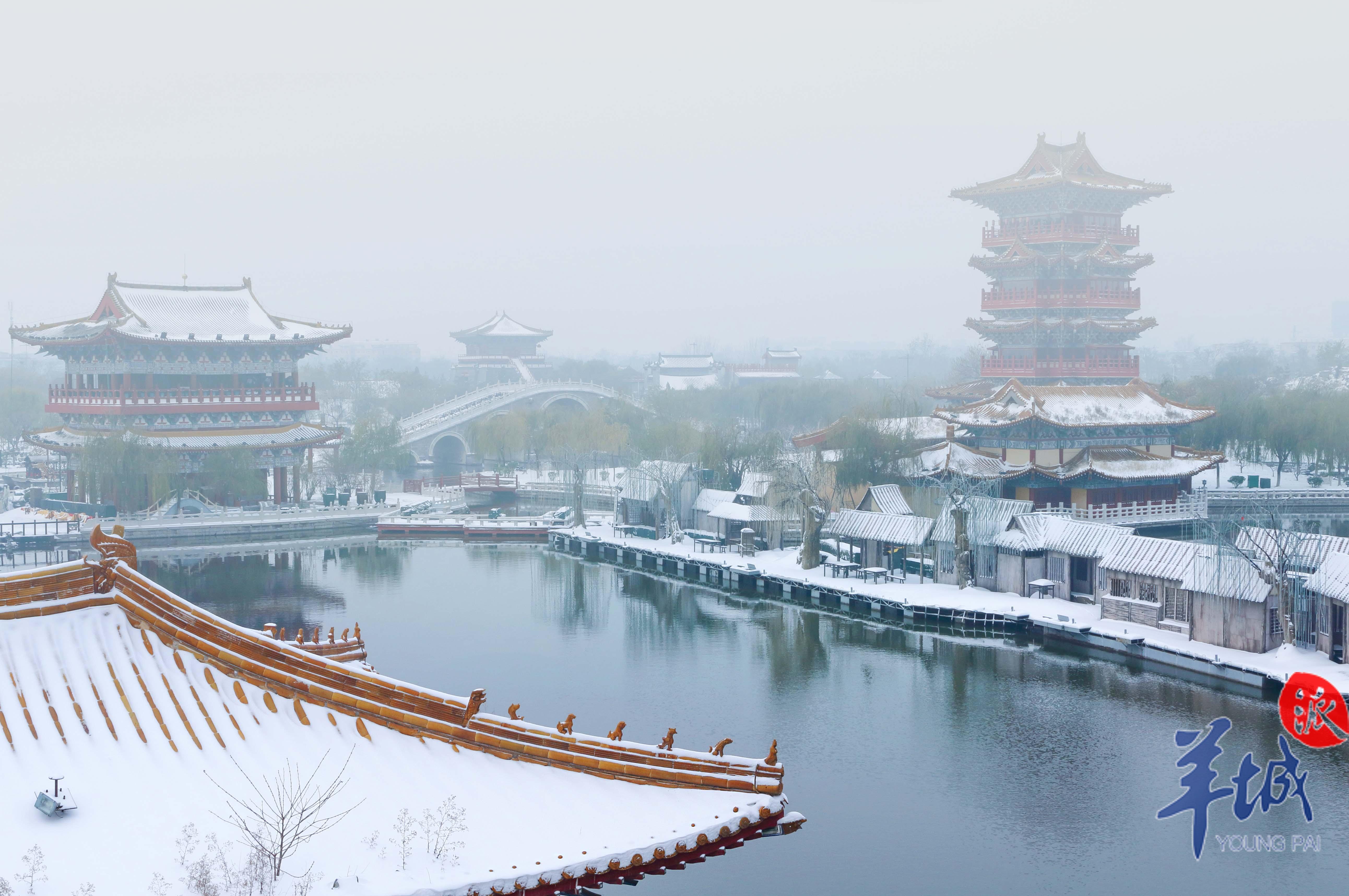
According to historical records, Zhuxian Zhenmu, known as the “ancestor of Chinese woodblock New Year paintings”, was born in the Tang Dynasty, flourished in the Song Dynasty, and reached more than 300 New Year painting workshops during the Ming and Qing Dynasties. The opening of the canal made Zhuxian Town a commercial center in the Central Plains, and the sales of New Year pictures flourished. Many merchants gathered here from the current Shandong, Jiangsu, Anhui, Fujian, Ningxia and other regions to buy two-thirds of the country’s New Year pictures.
ZhuKomiksThe prosperity of Xianzhen woodblock New Year paintings is inseparable from the fertile land of Kaifeng. During the Northern Song Dynasty, Kaifeng was the center of politics, economy and culture in the country. The large urban class activated the demand for folk culture and provided a rich soil and market for the creation of New Year paintings. Meng Yuanlao recorded in “Dream of Tokyo” that “In recent years, the market has printed door gods, peach boards, peach talismans, etc. “On the River During the Qingming Festival” which depicts the social life of the Northern Song Dynasty, the nearest place of the volume is clearly identifiable.
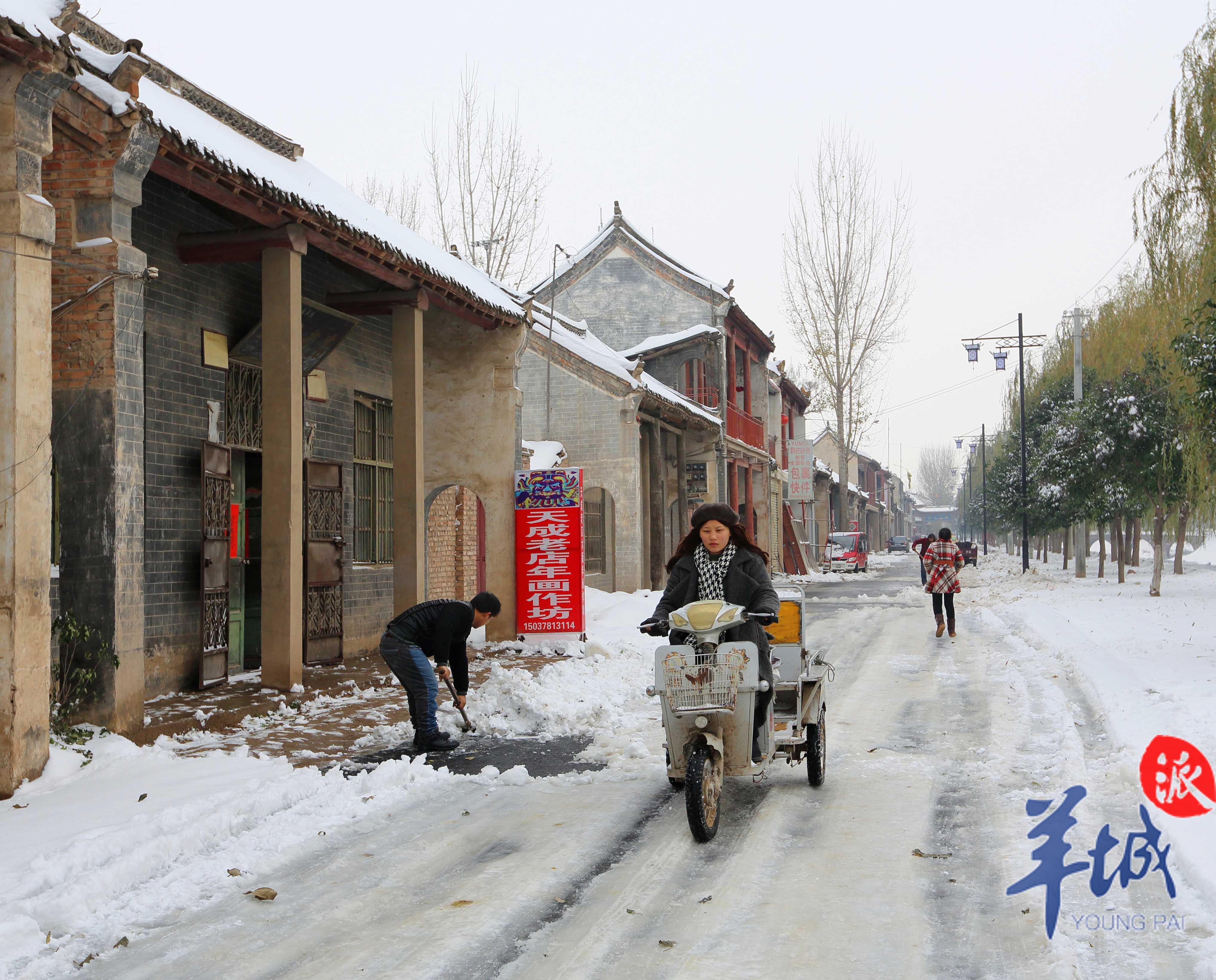
Strive on a New Year’s Painting Street, closely adjacent to the ancient canal, the old houses on both sides are mottled, and the rugged eaves show the vicissitudes of the years it has experienced, and the original taste is full of nostalgia.
A two-story shop has a high “profile” with black background and yellow characters, and the letter “Tiancheng Old Shop” is written on it. There is no decoration in the old house with peeling paint, and the four walls are full of New Year’s paintings. The mighty door god, the iron-faced and curly bearded Zhong Kui’s head, the fifth son wins the title, the pine crane prolongs life, the lotus gives birth to a noble son and other representative themes.
<a The fifth generation successor of the "Tiancheng Old Shop" "Tiancheng Old Shop" is a 70-year-old man Yin Guoquan dressed simply. He sat in front of the stage where various colors of paints were piled up. With the help of his grandson, he repeatedly applied different pigments and printed New Year pictures with colors. It took the old man a month to place a newly engraved set of carved plates on the stage. The iron rack next to it was hung with colorful greens, and the New Year pictures that had just been printed and dried were very beautiful. Behind the counter was seated, the table was built with Mr. Yin's wife, a typical traditional workshop.
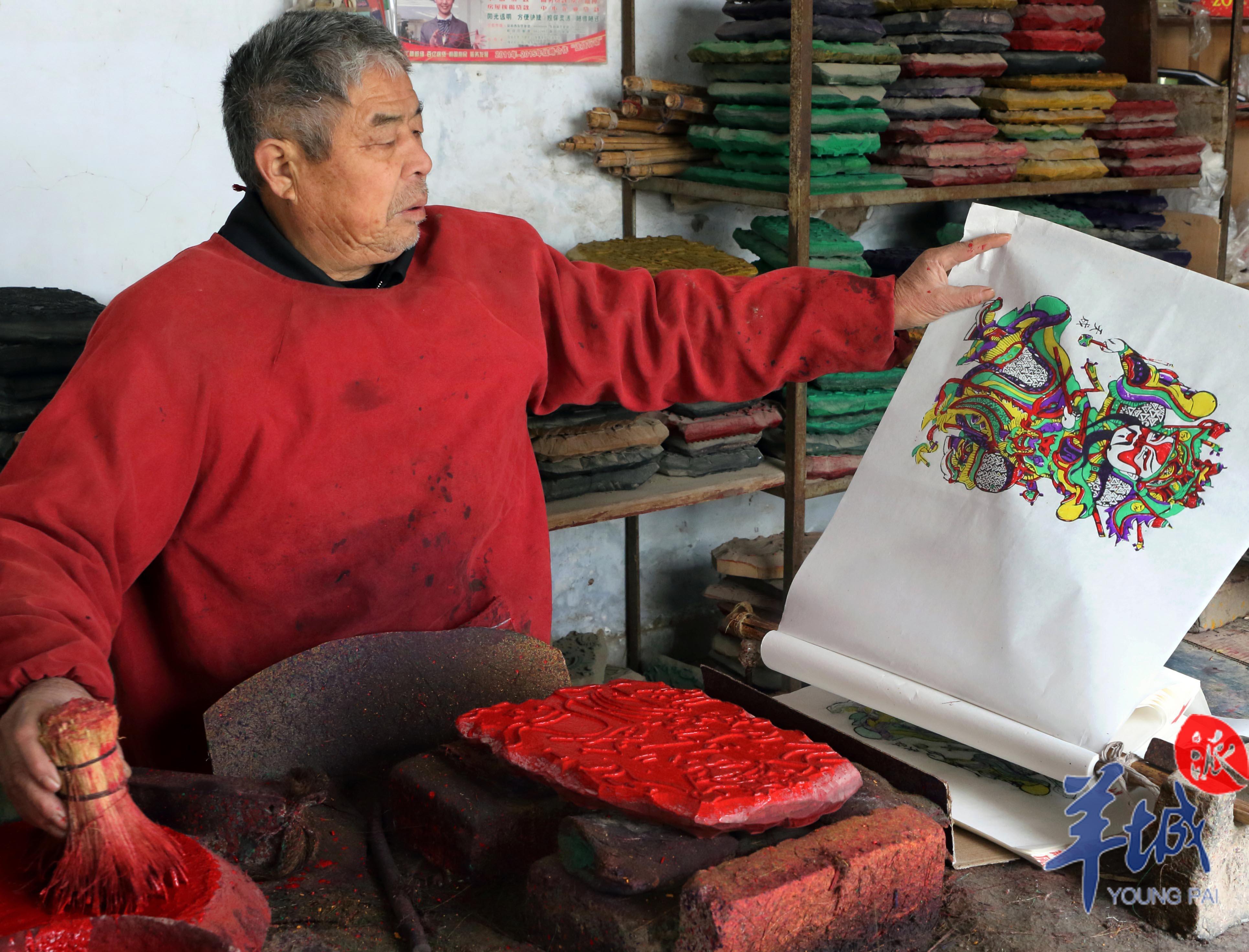 The peak period of New Year’s painting production begins in early December every year. The picture shows Yin Guoquan, who is fully focused on printing New Year’s paintings. In Yin Guoquan’s view, the truly authentic traditional skills are facing the danger of losing.During the year, he has inherited and created more than 300 sets of carved plates and more than 1,500 pieces. He said: “The pigments I printed in New Year’s paintings are carefully processed and cooked with plants such as pine smoke, locust rice, and Zhangdan. Although it takes time and effort, it is better than the current industrial pigments.” “The things passed down by the older generation cannot be lost. My two sons and grandsons are heirs.” Looking at his slightly rougher hands than ordinary people, and the wrinkles on his face being gullyed by the years, a kind of shock filled his heart.
The peak period of New Year’s painting production begins in early December every year. The picture shows Yin Guoquan, who is fully focused on printing New Year’s paintings. In Yin Guoquan’s view, the truly authentic traditional skills are facing the danger of losing.During the year, he has inherited and created more than 300 sets of carved plates and more than 1,500 pieces. He said: “The pigments I printed in New Year’s paintings are carefully processed and cooked with plants such as pine smoke, locust rice, and Zhangdan. Although it takes time and effort, it is better than the current industrial pigments.” “The things passed down by the older generation cannot be lost. My two sons and grandsons are heirs.” Looking at his slightly rougher hands than ordinary people, and the wrinkles on his face being gullyed by the years, a kind of shock filled his heart.
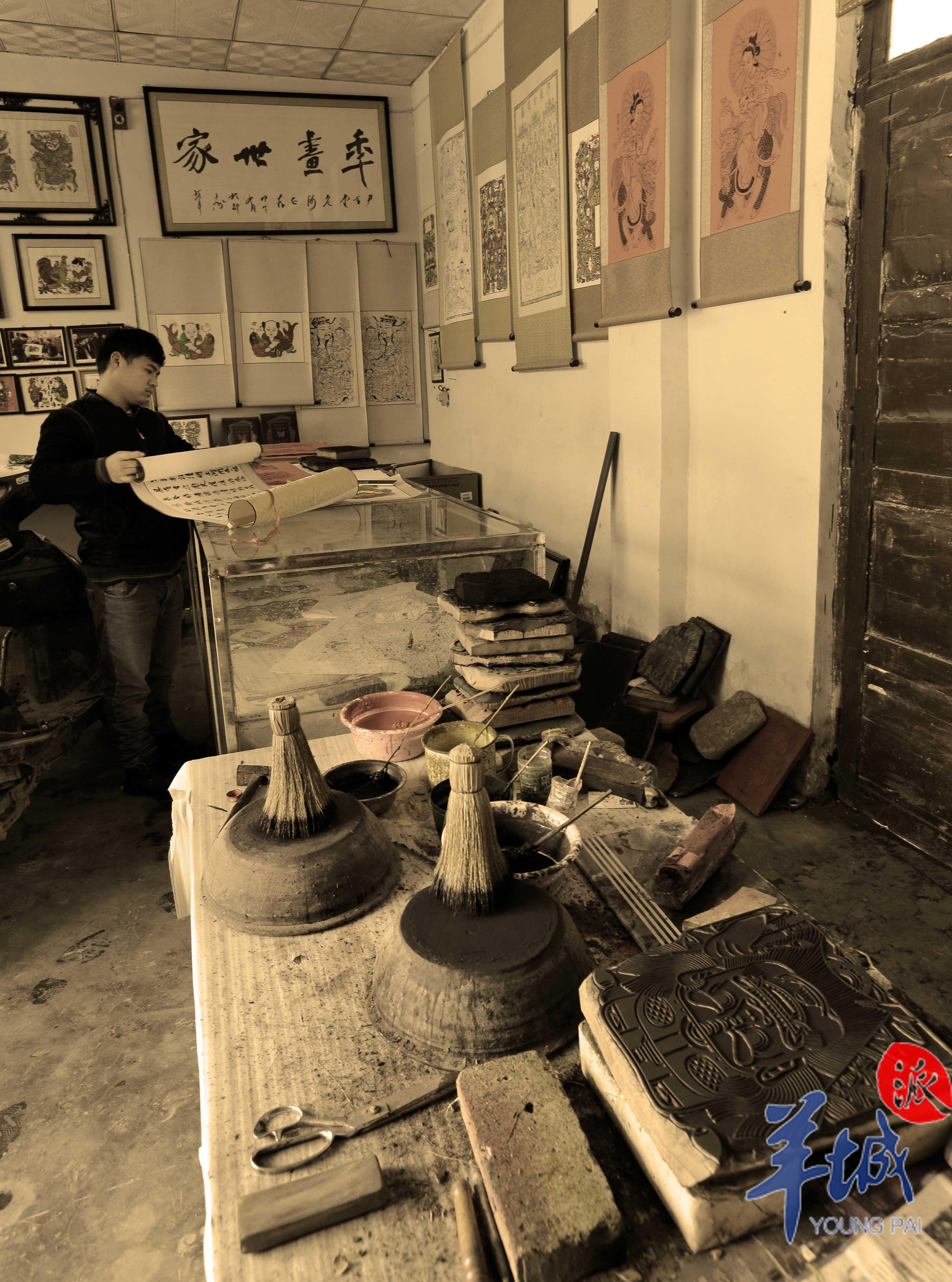 The “Tiancheng Old Shop” connected to the counter of the production stand is full of vicissitudes of time. The content of the woodblock New Year pictures in Zhuxian Town is mostly based on familiar historical stories, myths and legends. The printing technique is mainly woodblocked water color overprinting, six-page set, and some sets are as many as nine-page. The colors of red, yellow, green and purple are bright and exaggerated. The character has a big head and a small body, looking rustic and cute. Most characters use white faces and red eyelids on their faces, which is its unique technique and is also the representative style of Zhuxianzhen woodblock New Year pictures.
The “Tiancheng Old Shop” connected to the counter of the production stand is full of vicissitudes of time. The content of the woodblock New Year pictures in Zhuxian Town is mostly based on familiar historical stories, myths and legends. The printing technique is mainly woodblocked water color overprinting, six-page set, and some sets are as many as nine-page. The colors of red, yellow, green and purple are bright and exaggerated. The character has a big head and a small body, looking rustic and cute. Most characters use white faces and red eyelids on their faces, which is its unique technique and is also the representative style of Zhuxianzhen woodblock New Year pictures.
The vigorous and ancient lines, simple and symmetrical patterns, and the rough and thick atmosphere reflect the strong local art style of Zhuxian Town, the hinterland of the Central Plains. Mr. Lu Xun once commented on the woodblock New Year paintings in Zhuxian Town, “These woodblocks are simple, with thick and powerful engravings, and they are not stained with powder. The characters are not charming, the colors are strong and very local.”
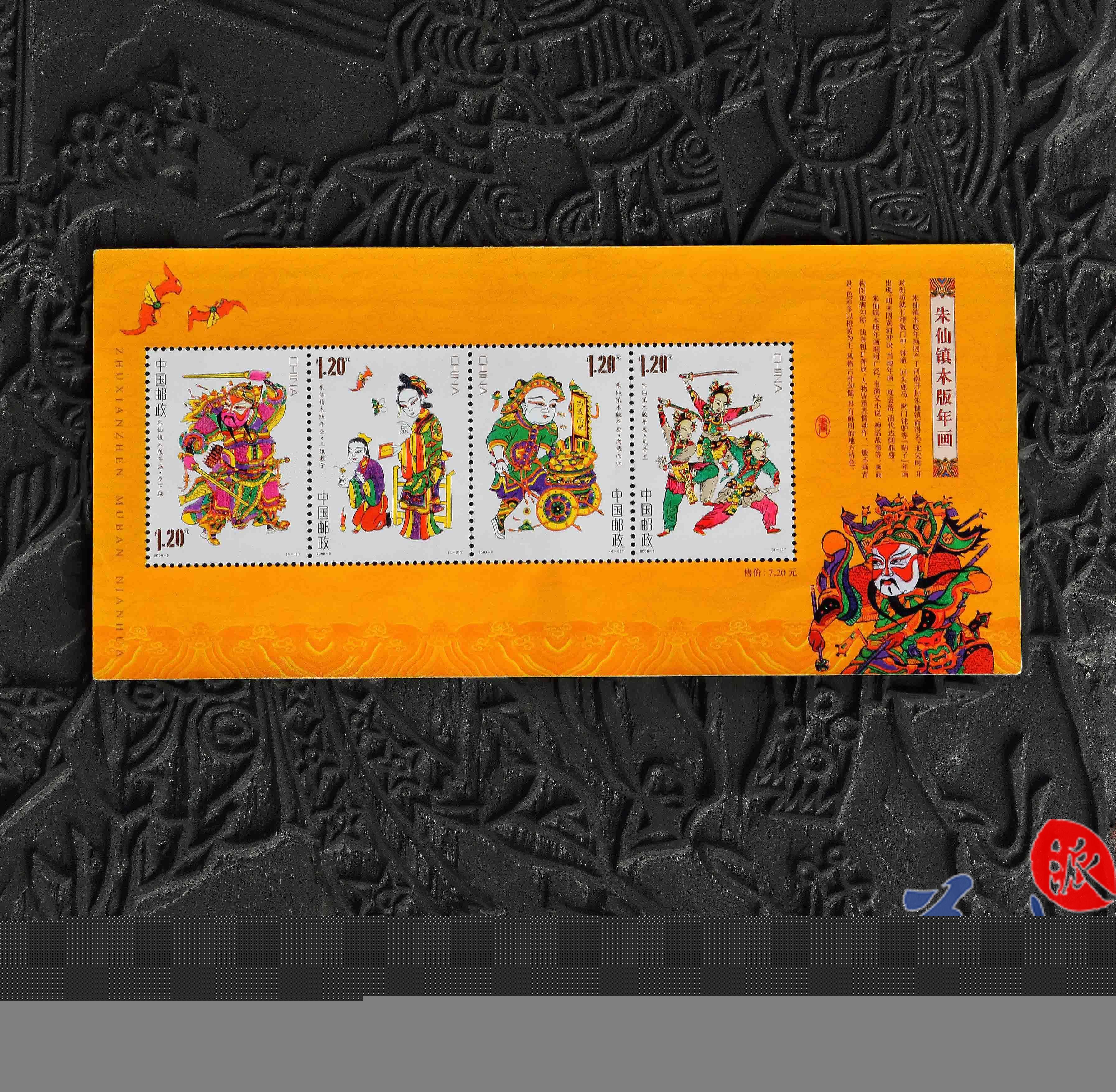 The special stamp of “Zhuxian Town Woodblock New Year paintings” issued in 2008 is taken from the classic story, Sanniang teaches her children, and returns home with a full load. href=”https://comicmov.com/”>Cinema and Fengxianglan
The special stamp of “Zhuxian Town Woodblock New Year paintings” issued in 2008 is taken from the classic story, Sanniang teaches her children, and returns home with a full load. href=”https://comicmov.com/”>Cinema and Fengxianglan
The Qingming Shanghe Park, a real-life theme park opened to the public in 1998, is located on the west bank of Longting Lake, Kaifeng City. It is a large historical and cultural park with the theme of Song culture as a model of the realistic painting “Along the River During the Qingming Festival” by Northern Song painter Zhang Zeduan, and is now a 5A scenic spot.
The garden sells woodblock New Year pictures in Zhuxian Town for four years. In the retro New Year picture shop, you can learn about the production of traditional woodblock New Year pictures. Visitors can not only appreciate and purchase it., and can also participate in the interaction on site.
 In the ancient and vigorous Zhuxian Town woodblock New Year pictures, the red, yellow, green and purple are bright and thick, the characters are exaggerated, with a big head and a small body, looking rustic and cute.
In the ancient and vigorous Zhuxian Town woodblock New Year pictures, the red, yellow, green and purple are bright and thick, the characters are exaggerated, with a big head and a small body, looking rustic and cute.
Suzhou Taohuawu
Carrying beautiful expectations
The ancient city of Suzhou is gentle and colorful, and has a thousand years of cultural heritage, giving Taohuawu woodblock New Year pictures a brilliant and outstanding character. During the Yongzheng and Qianlong periods of the Qing Dynasty, the prosperous period of Taohuawu New Year paintings. Hundreds of painters and printing craftsmen gathered here. The New Year paintings were sold to Southeast Asia, and “Taohuawu” became synonymous with Suzhou woodblock New Year paintings.
Looking through some books recording Suzhou’s cultural tourism or wandering in the historical districts such as Shantang Street and Pingjiang Road, you can see the shops of “Taohuawu New Year Pictures”. There is also a Taohuawu Street in Suzhou, which is a stone road that is not wide. Houses with pink walls and black tiles are arranged on both sides. The hanging lanterns and Spring Festival couplets exude the joy of the New Year.
In the shops on Taohuawu Street, it is not difficult to find the shadow of New Year pictures. In Puyuan on Xiaochangqiao Road, which intersects Taohuawu Avenue, find Babaylan to Taohuawu Woodcut New Year Painting Museum. Walking in, a fresh and elegant garden comes into view, and the New Year Painting Museum is quietly hidden in the lush green shade.
 Small bridges and flowing water in Suzhou can be used in paintings
Small bridges and flowing water in Suzhou can be used in paintings
The museum currently collects hundreds of ancient New Year painting collections. The pictures of the word “Fu” are displayed, the pictures of the family, the pictures of Magu’s birthday, the pictures of the double beauty and the pictures of the mysterious view of Gusu, and other treasures. In the real scene display part, the living room is covered with “three stars shining” and “eight immortals crossing the sea”, which means the seats are full of guests; the bedroom is covered with “flowers bloom and wealth” and “becoming a noble son early”, which means the harmony of couples. These New Year pictures that reflect the living conditions of the people in ancient times are loved by modern people.
I saw a table with engraving tools such as engraving, engraving platform, printing platform, brown brush, brown rub, fist knife, etc., and several inheritors in their early thirties were engraving the version meticulously. Holding the knife in his right hand, skillfully carving lines on the woodblock, sweat oozing out of the tip of his nose, but he didn’t care to wipe it off. His concentration looked like he made the most precious treasure in the world.
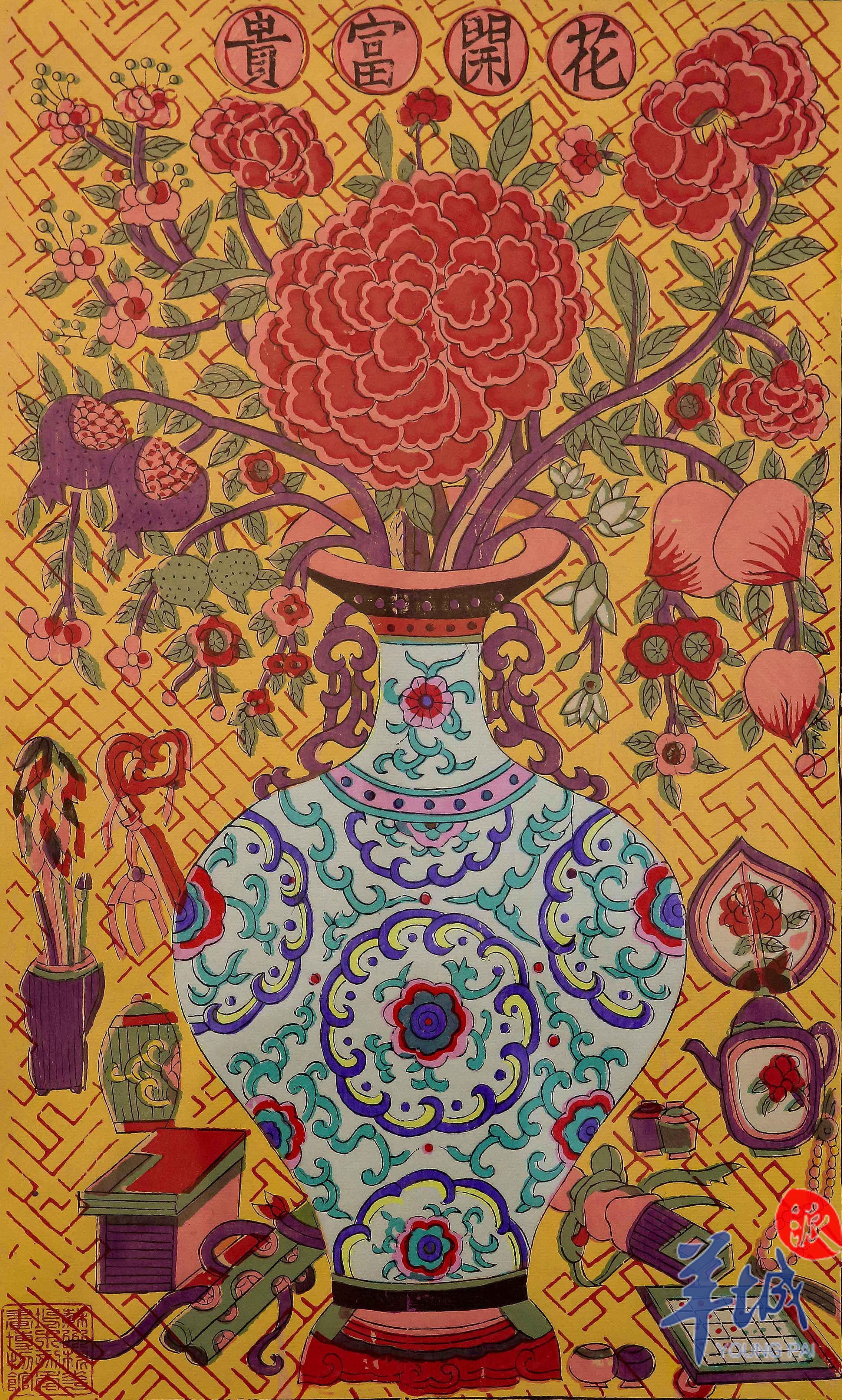 The ancient Taohuawu historical classic woodblock New Year painting “Flowers Blooming and Rich”
The ancient Taohuawu historical classic woodblock New Year painting “Flowers Blooming and Rich”
According to reports, a Taohuawu woodblock New Year painting is not completed by a painter alone. It requires three steps to draw, engrave and print, and is created by a collective creation. Compared with New Year paintings in other regions, the characteristic of Taohuawu New Year painting is that it relies entirely on the printing plate printing. After printing, there is no stroke, and it is known for its engraving skills.
A fist knife that is just clenched by the palm can evolve into four methods: starting knife, placing knife, picking knife, and re-knife. It pays attention to “precise knives, picking knife, and shoveling the bottom”. The lines should be engraved naturally and vigorously, clean and neat. Generally speaking, it takes 5 years to learn the drawing of Taohuawu New Year paintings, 4 years to engrave, and 2 years to print.
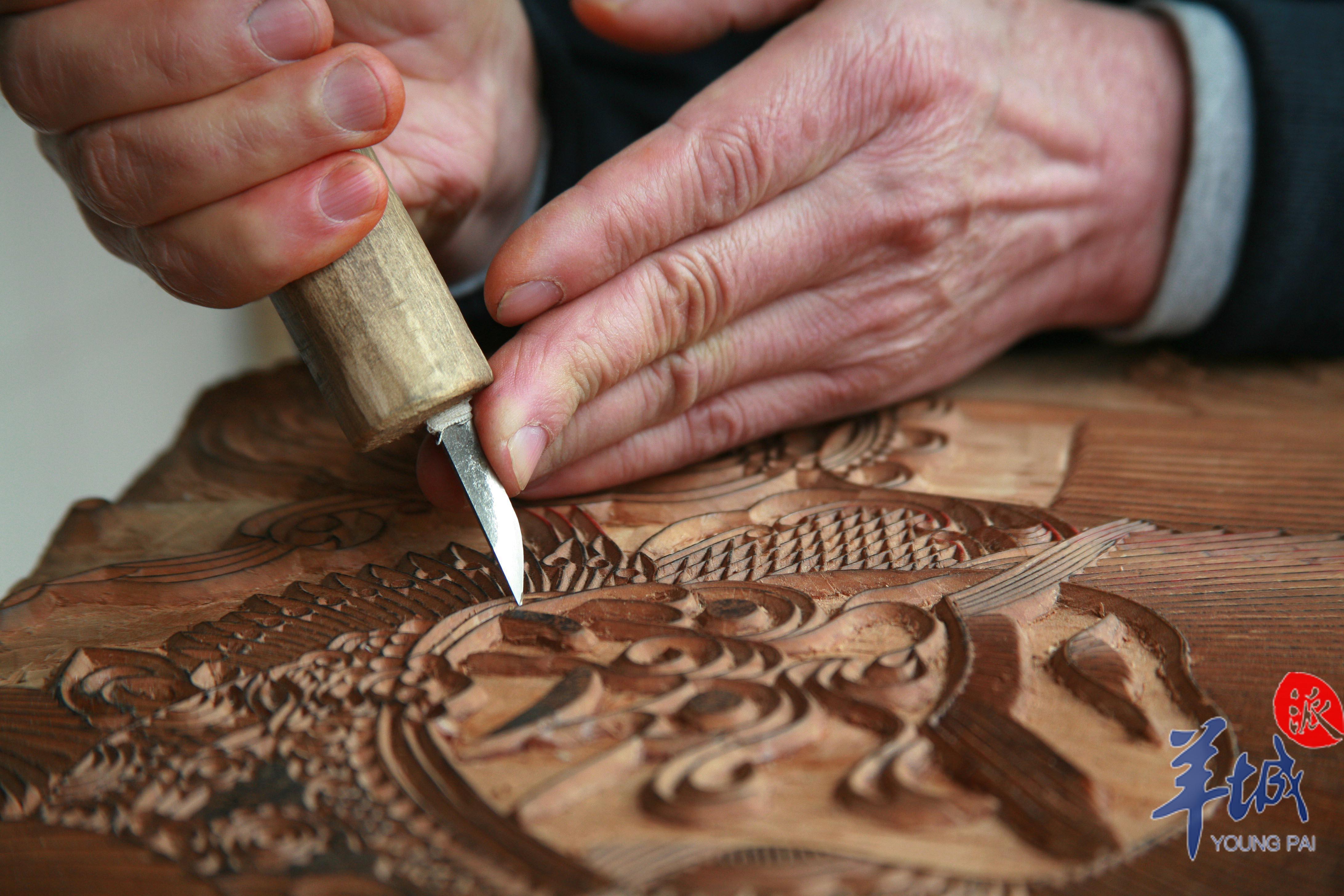 One of the main steps of traditional Chinese woodblock New Year paintings
One of the main steps of traditional Chinese woodblock New Year paintings
In early 2008, a New Year painting “A Tune of Harmony” created during the Yongzheng period of the Qing Dynasty was successfully copied in Puyuan. This can be called the pioneering work of Taohuawu New Year paintings. “A Tune of Harmony” warns the people of the palace to live in harmony and spread to the people’s desire to unite and fulfill their wishes.
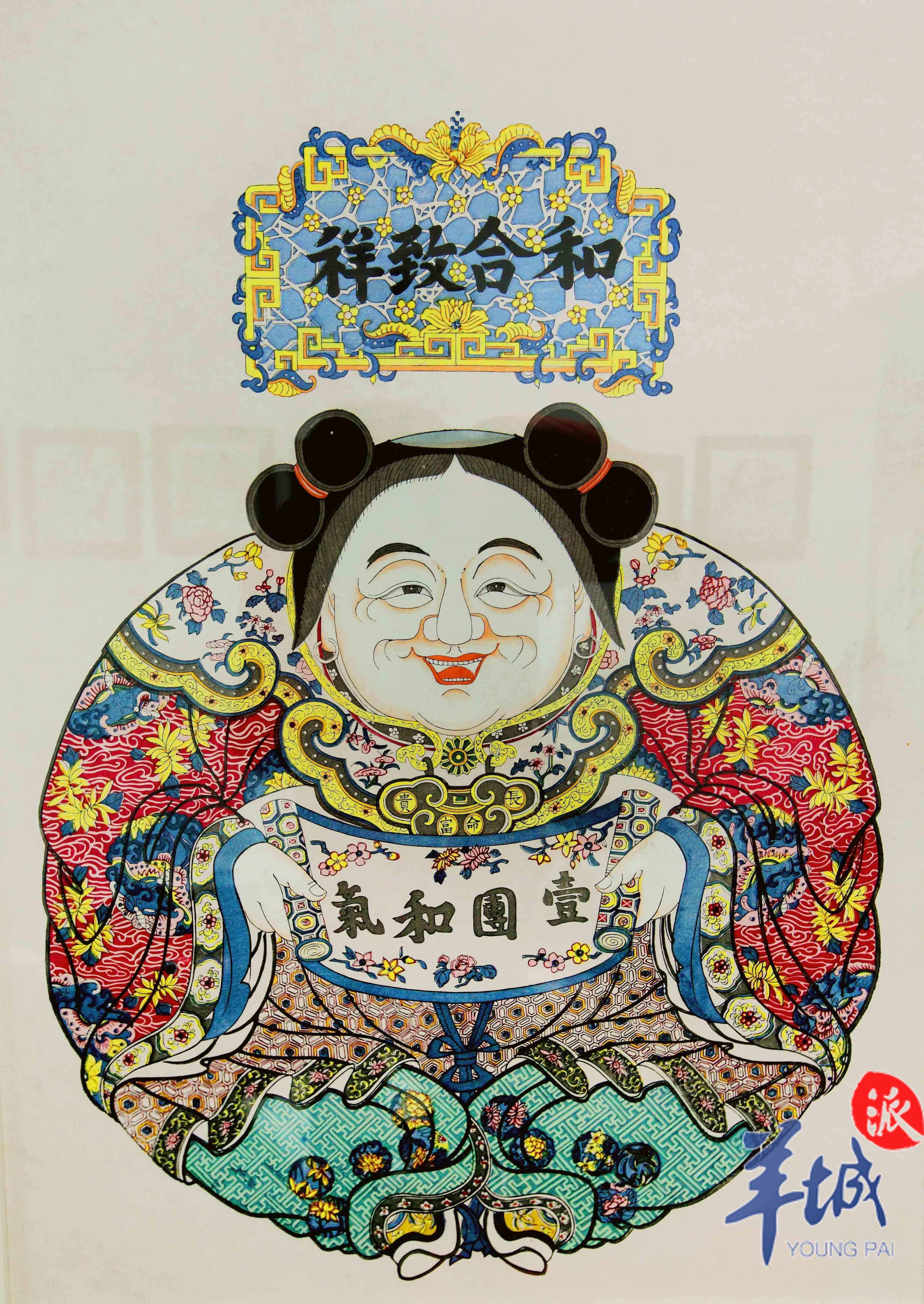 “A Bun of Harmony” is one of the representative works of Taohuawu woodblock New Year paintings
“A Bun of Harmony” is one of the representative works of Taohuawu woodblock New Year paintings
Since history, Taohuawu woodblock New Year paintings have carved a unique folk custom, that is, from content to social effects, it is called woodblock New Year paintings, but not limited to New Year postings and hangings. ButKomiks adapt to the seasons and when different festivals and solar terms come every year, they must use woodblock New Year pictures to express different beautiful expectations.
For example, when bidding farewell to the old and welcome the new, “Happy Picture” is posted; when the beginning of spring, you must post “Mingyuan Picture”; when the Mid-Autumn Festival, you must post “Moon Palace Picture”… As you post, the new year is coming again.
Tianjin Yangliuqing
Shenzhen Spring Festival<a When I came to Yangliuqing Town, Xiqing District, Tianjin, an antique buildings with carved beams and painted buildings immediately came into my eyes. The frozen ancient canal quietly "hibernated" in the town, with several beautiful arch bridges spanning the ice.
Tianjin Yangliuqing surrounded by Ziya River, Nan Canal, and Daqing RiverDuring the Ming and Qing dynasties, it was an important terminal for the circulation of goods from north to south and overseas trade, and Yangliuqing woodblock New Year paintings were therefore deeply influenced by multiculturalism.
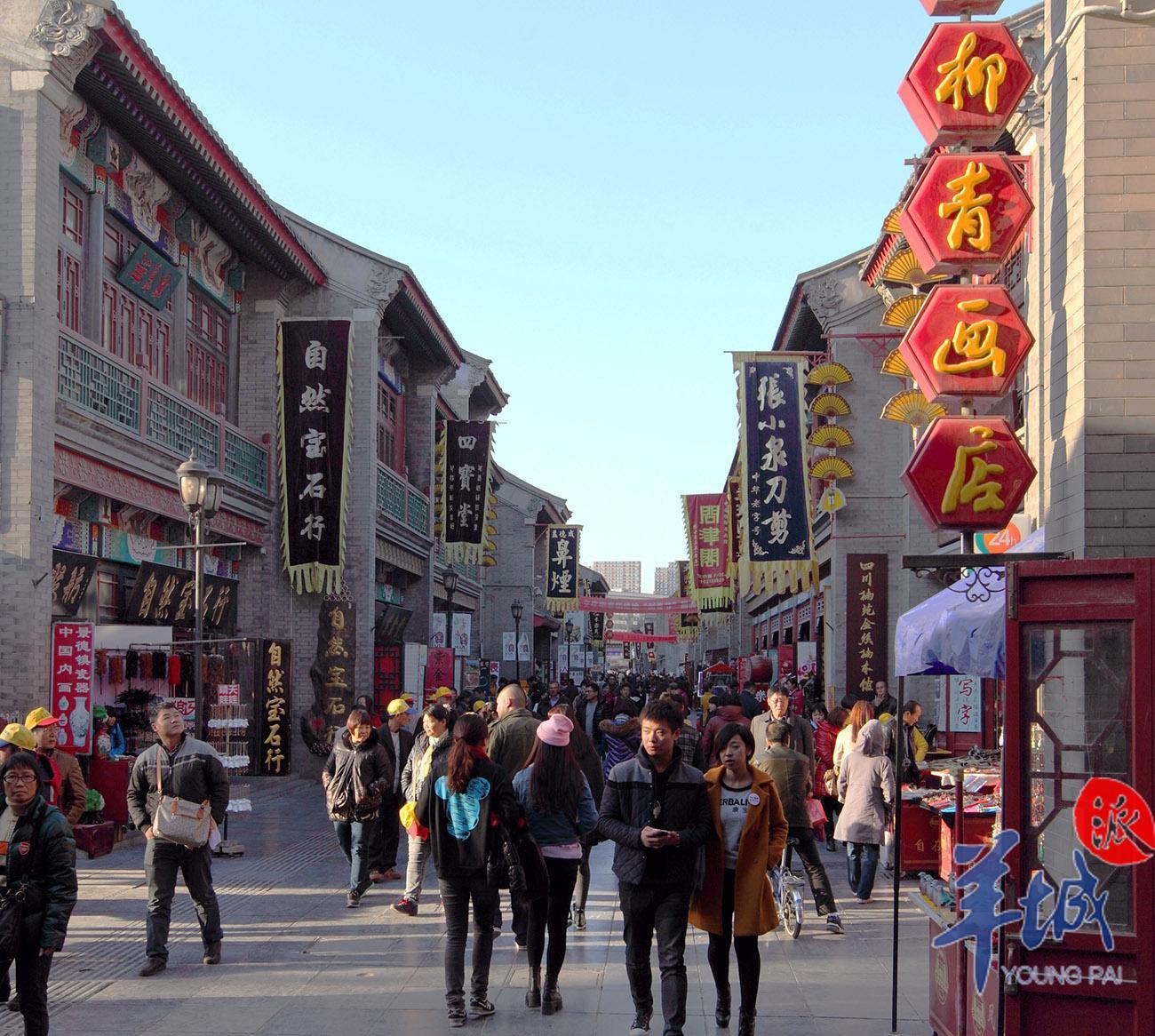 Tianjin Ancient Cultural Street is a Scenery
Tianjin Ancient Cultural Street is a Scenery
According to historical records, Yangliuqing Chinese painting first appeared in the Wanli period of the Ming Dynasty, and reached unprecedented prosperity during the Qianlong period of the Qing Dynasty. In 1958, the state established the Yangliuqing Painting Club to rescue the New Year painting art, collected and organized Yangliuqing Paintings, and cultivated a group of outstanding New Year painting artists.
In recent years, with the prosperity of the cultural tourism market, the demand for Yangliu Youth Painting has expanded, bringing this ancient folk art back to the lives of the people. At the same time, Yangliu Youth Painting has also entered the international art sales and collection market.
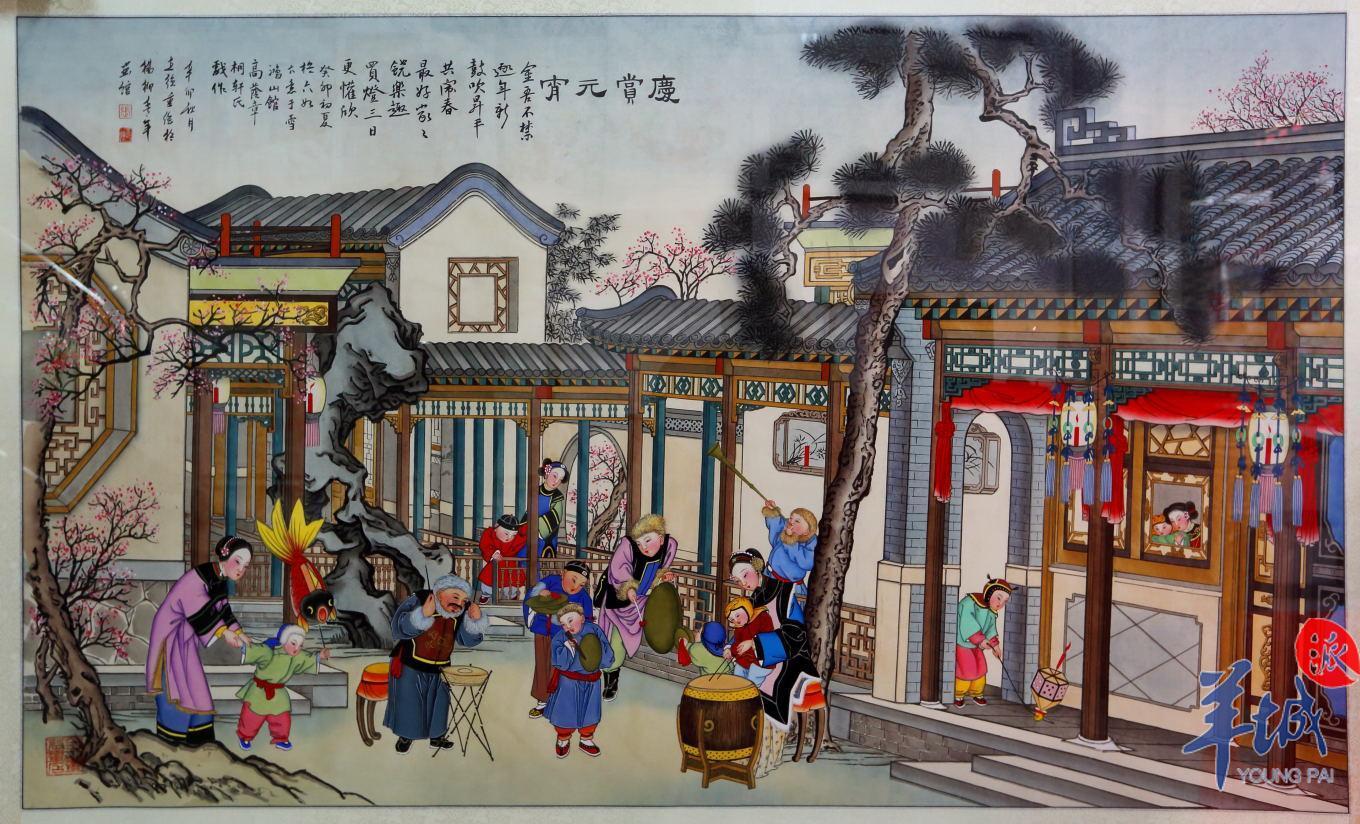
If Taohuawu New Year’s paintings are like implicit and beautiful beauty, then YangliuqingKomiks New Year’s paintings are lively and straightforward men. From the picture of a carp carp with a carp and a fat baby with lotus in her arms to the three-star picture of auspicious fortune and longevity, we have created a unique style of vivid, lively, joyful and full of emotions.
Yangliuqing Nian Painting inherited the tradition of Song and Yuan paintings and absorbed the forms of woodcuts, arts and crafts, and drama stages in the Ming Dynasty. The early craftsmanship is basically the same as Taohuawu New Year paintings, and both use the stereotyped overprint of the drawings; in the post-production, it takes a lot of time to be used for hand-painting.
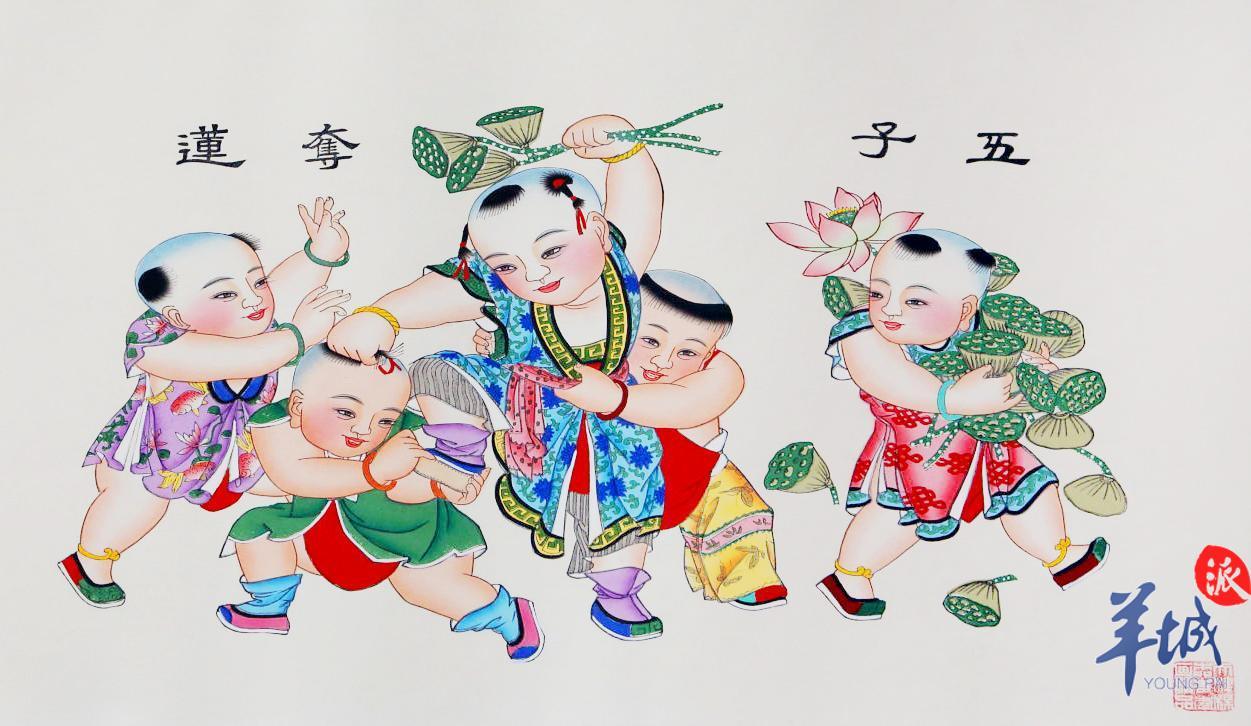 Yangliuqing Nian Painting Five Sons Take Lotus was once selected as a stamp.
Yangliuqing Nian Painting Five Sons Take Lotus was once selected as a stamp.
A New Year’s painting requires five main processes: drawing, carving and drawing, woodblock overprinting, hand-painting, and mounting, plus more than three monochrome overprinting. Because of the combination of printing and painting, it has a quiet, elegant and lively visual effect, which is beyond the reach of other folk New Year pictures.
The content of the picture is mainly folk life, fat dolls, maids and historical stories, the most classic oneIt belongs to “After Years of Life”, the baby in the painting has a baby face, a martial arts posture, a carp in his arms, and a lotus in his hands, which caters to the people’s beautiful wishes of “praying for blessings and blessings” and “more children and blessings”.
 Yangliuqing Door God New Year’s Painting
Yangliuqing Door God New Year’s Painting
On the antique Ming and Qing Streets, Yuchengha, Yichengyong, Gu Liuxiang, Huayunzhai and others are dazzling. New Year’s painting workshops are one by one, and there are more than 60 New Year’s painting production workshops and sales stores in Yangliuqing Town. It is one of the best New Year’s paintings that have been restored. It seems that it has returned to the scene of “drawing every family and painting every household” during the Qianlong period of the Qing Dynasty. Tourists buying New Year’s paintings are endless all year round.
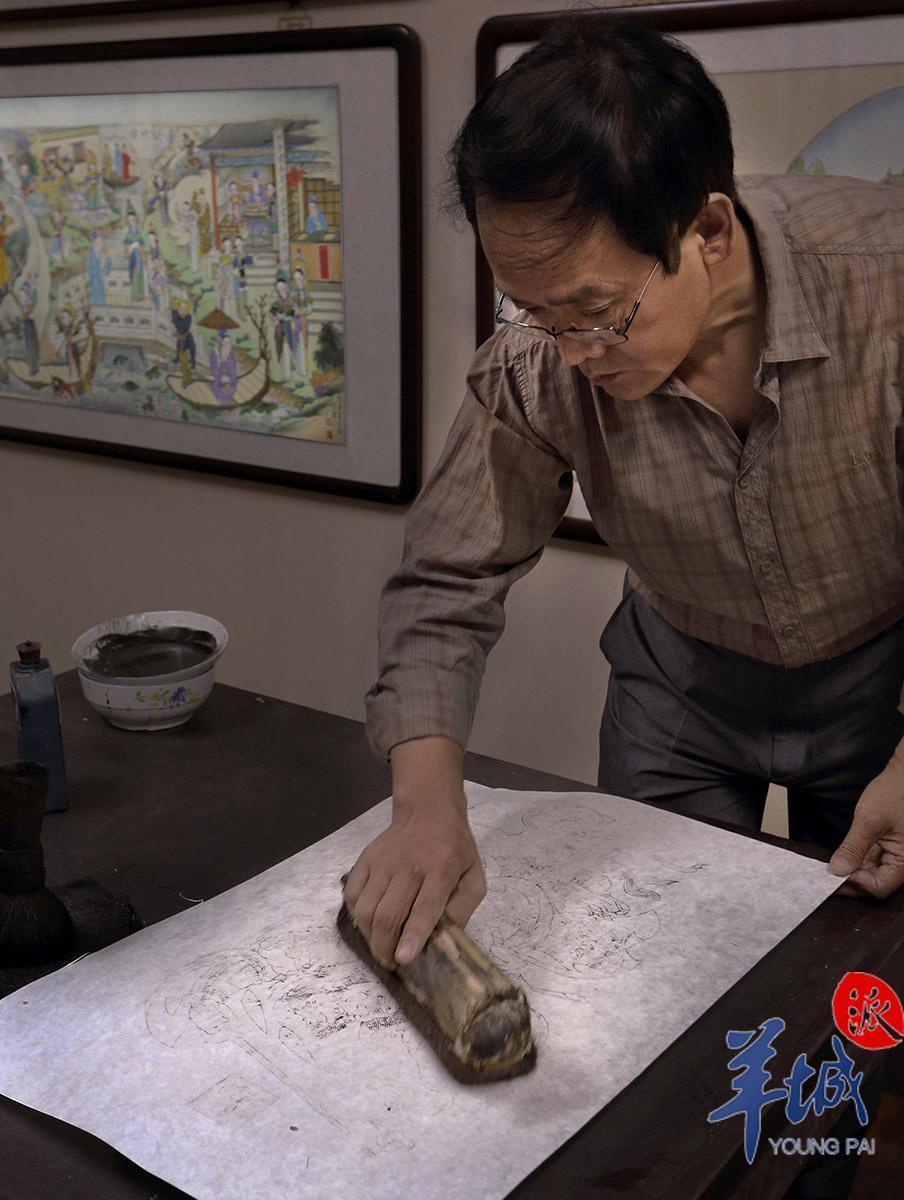
The first woodblock New Year painting museum in Yangliuqing Town holds a series of activities “Appreciating New Year paintings and observing folk customs” every year in the first month.
The northern folk house in the exhibition hall on the first floor of the museum, on the stove is a picture of “Babaylan” that represents the sayings of good things from heaven and the safety of the land; on the water tank is a picture of a big carp that represents more than a year and has a lively and vivid shape; in the middle of the main hall is a picture of a painting of a blessing, a three-star middle hall for blessings and longevity to protect the whole family; on the living rooms on both sides, the upper house where the mother-in-law lives is a picture of an educational New Year; on the lower house where the daughter-in-law lives is a picture of a New Year with many children and blessings; on the edge of the kang is a picture of a kang with a strong local atmosphere. Visitors to the museum can also experience the production process of woodblock New Year pictures.
When I walked out of the museum, what I impressed most was the gorgeous and vividness of Yangliu Youth New Year’s paintings, and I could not forget the local people’s persistence in “only posting New Year’s paintings is considered to be the New Year’s Day.”
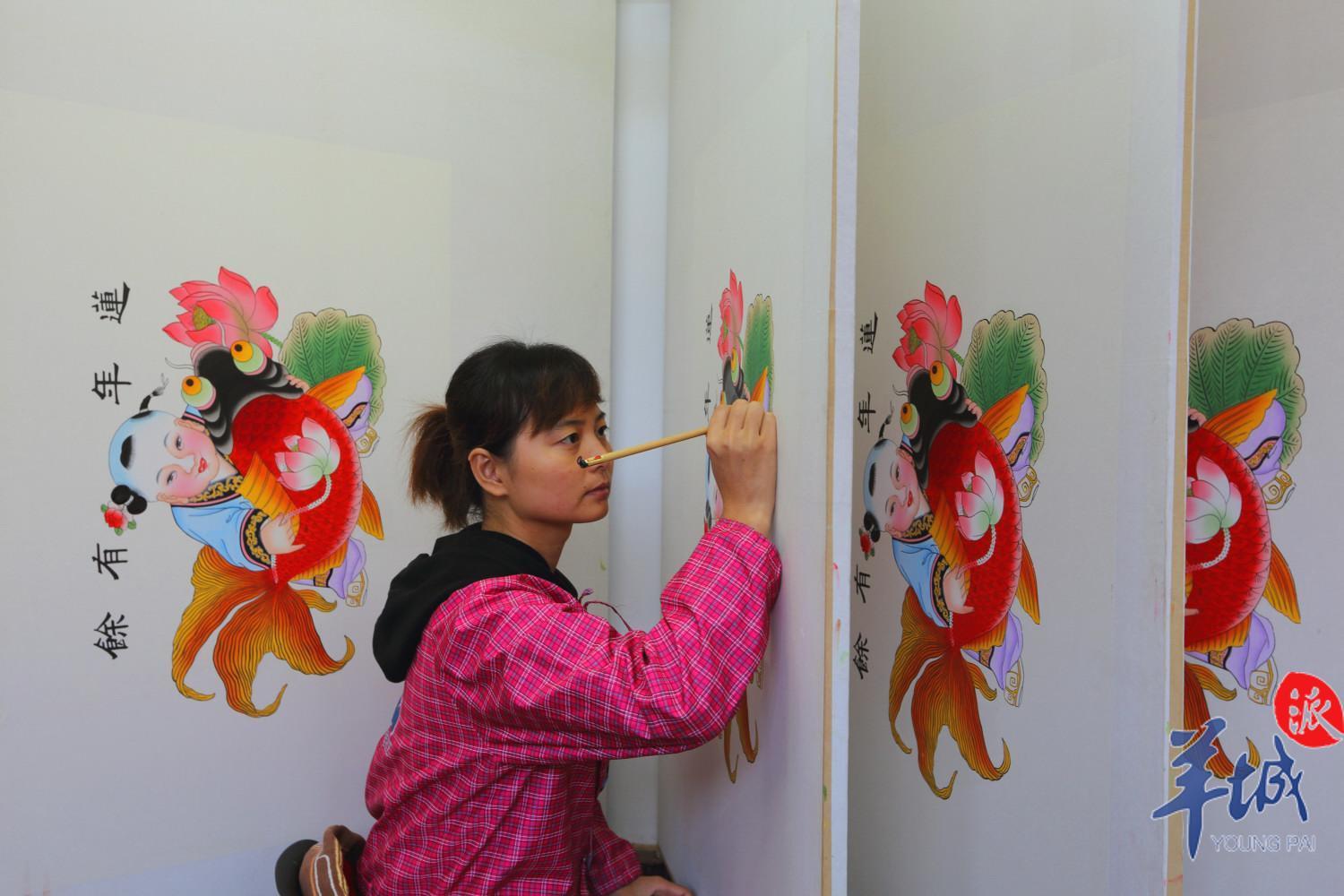 Yangliu Youth Painting takes a lot of effort to use hand-painting. The picture shows the painter of “New Year’s Painting” is focusing on the ending of the classic painting “After Years and More”
Yangliu Youth Painting takes a lot of effort to use hand-painting. The picture shows the painter of “New Year’s Painting” is focusing on the ending of the classic painting “After Years and More”
Now, the improvement and innovation of New Year’s paintings are a new issue faced by older New Year’s painting craftsmen and young painters. Although it takes time and effort, it can be seen that it has a dense taste of life, abundant emotions and aesthetic interests, and the full expression of the Chinese culture and the dreams of Yanhuang for thousands of years.
Wood with more than two thousand years of history and created by Chinese local artistsThe New Year paintings are the oldest type of painting in the world, encyclopedias of Chinese folk customs and “living fossils” full of elements of Chinese civilization.
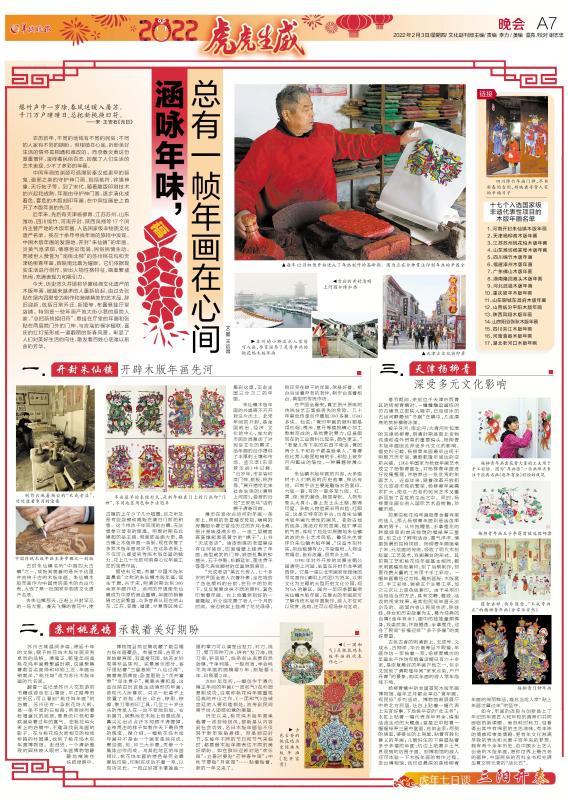 Yangcheng Evening News’ February 3, 2022 A7 Evening Party Supplement
Yangcheng Evening News’ February 3, 2022 A7 Evening Party Supplement
Linked
List of Seventeen Woodblock New Year Pictures selected as representative national intangible cultural heritage projects
1. Woodblock New Year Pictures in Zhuxian Town, Kaifeng, Henan Province:
Simple and naive, with a long history, was born in the Tang Dynasty and flourished in the Song Dynasty, and was the founder of Chinese woodblock New Year Pictures.
2. Tianjin Yangliuqing woodblock New Year painting:
Celebrating the fun of the palace and the interests of the citizens.
 The Yangliu Youth Painting “Hometown Happy Safe” is a “Wuchenghao Painting”
The Yangliu Youth Painting “Hometown Happy Safe” is a “Wuchenghao Painting”
3. Wood-print New Year painting of Taohuawu, Suzhou, Jiangsu:
Delicious and neat, rich in color.
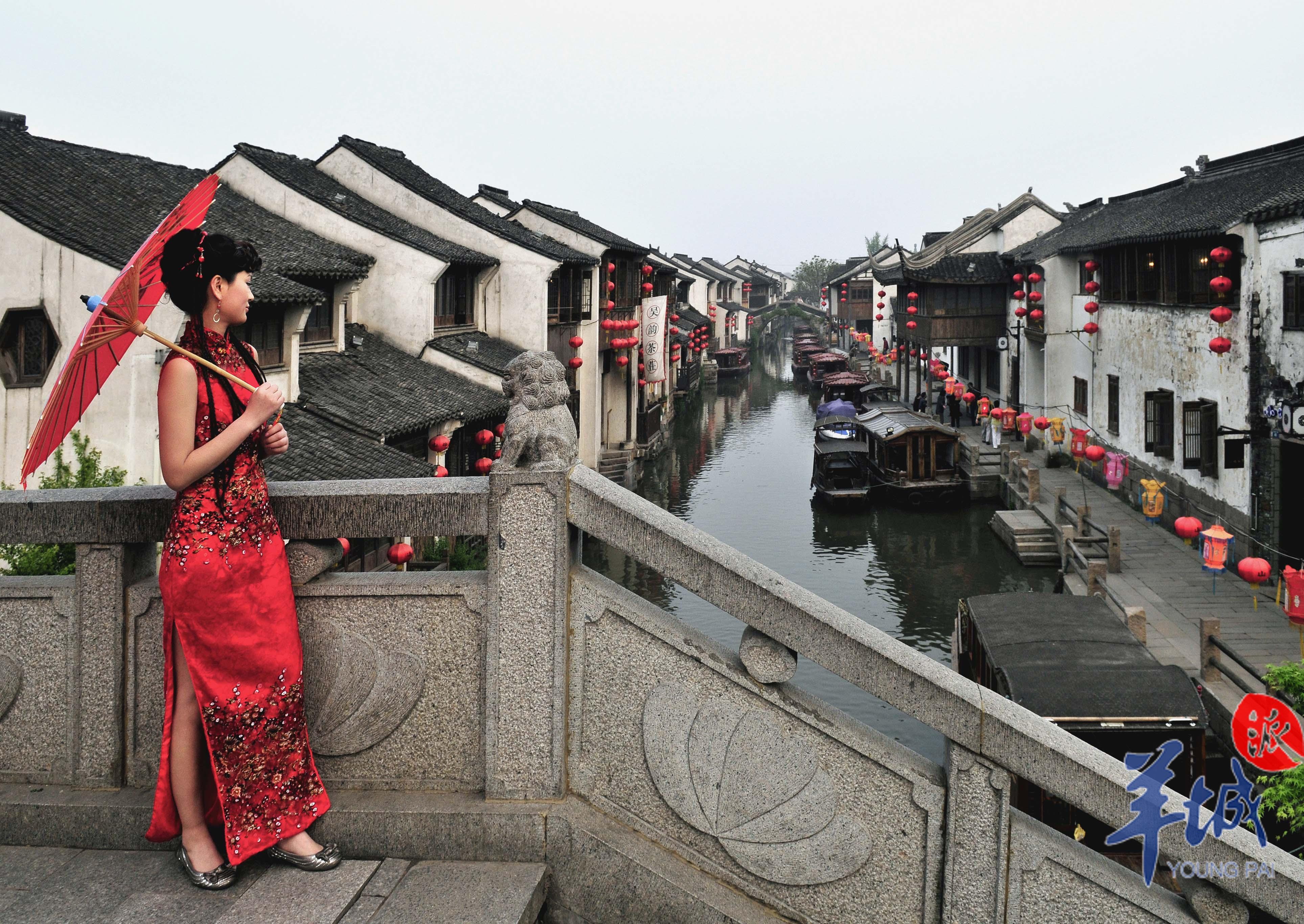 Small bridges and flowing water in Suzhou can be painted, giving birth to the beautiful Taohuawu woodblock New Year pictures
Small bridges and flowing water in Suzhou can be painted, giving birth to the beautiful Taohuawu woodblock New Year pictures
4. Yangjiabu woodblock New Year pictures in Weifang, Shandong:
Not bound by nature, rich imagination, and express the theme with generalization, romance, symbolism and meaning; the composition is complete, full and symmetrical; the shape is exaggerated, concise and simple.
5. Sichuan Mianzhu woodblock New Year pictures:
The writing is rich in meaning and colorful.
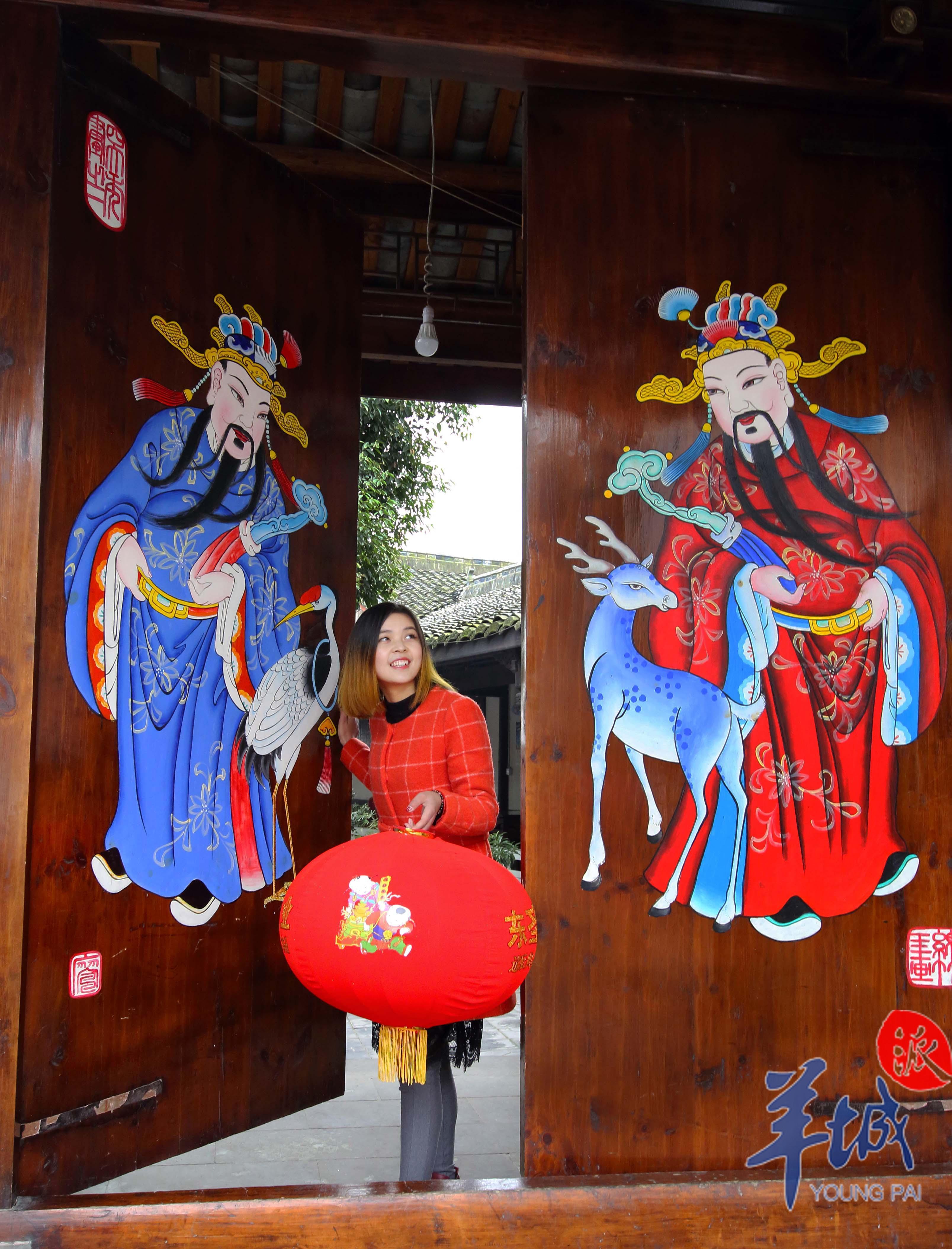
6. Wooden New Year Pictures of Zhangzhou, Fujian:
The region has rich colors, and the themes of gods and Buddhas are rich and diverse.
7. Wooden New Year paintings in Foshan, Guangdong:
The image is delicate, rough and concise, strong and powerful, with a full composition, which expresses its auspiciousness and is highly distinctive.
8. Wooden New Year pictures of Longhui Tantou, Hunan:
Use unrestrained colors, eye-catching orange and red, matching close to colors, and round linesMoist, strong sense of sportiness and strong decorative flavor.
9. Hebei Wuqiang Wooden New Year Pictures:
Rough and simple, full of rural atmosphere.
10. Chongqing Liangping Wooden-sheet New Year Pictures:
The shape is vivid and lively, the color contrast is strong, and it is full of lifestyle.
11. Wooden New Year paintings in Dongchangfu, Liaocheng, Shandong:
The composition is simple, the overall feeling is strong, the characters are exaggerated, full and simple; the lines are round and smooth
12. Wooden New Year paintings in Pingyang, Linfen, Shanxi:
The shape is exaggerated, the image is vivid, and the decorative is strong.
13. Shaanxi Fengxiang Cinema woodblock New Year pictures:
The style is rough and exaggerated, with large colors filled with them, and the people are dynamic and powerful.
14. CinemaZhang Qiu woodblock New Year paintings in Yanggu, Shandong:
The composition is plump, well-proportioned and simple.
15. Sichuan Jiajiang Wooden New Year Pictures:
Bright colors and exquisite craftsmanship, and was as famous as Mianzhu New Year Pictures and Liangping New Year Pictures.
16. Komiks Wooden New Year Pictures of Huaxian County, Henan Province:
The printing process is meticulous and complicated, the composition of the picture is balanced and symmetrical, the image is full and solid, and the lines are strong and powerful.
17. Wooden New Year pictures of Laohekou, Hubei:
The carvings are fine and smooth, the lines are rough and powerful, and the characters are vivid and exaggerated.